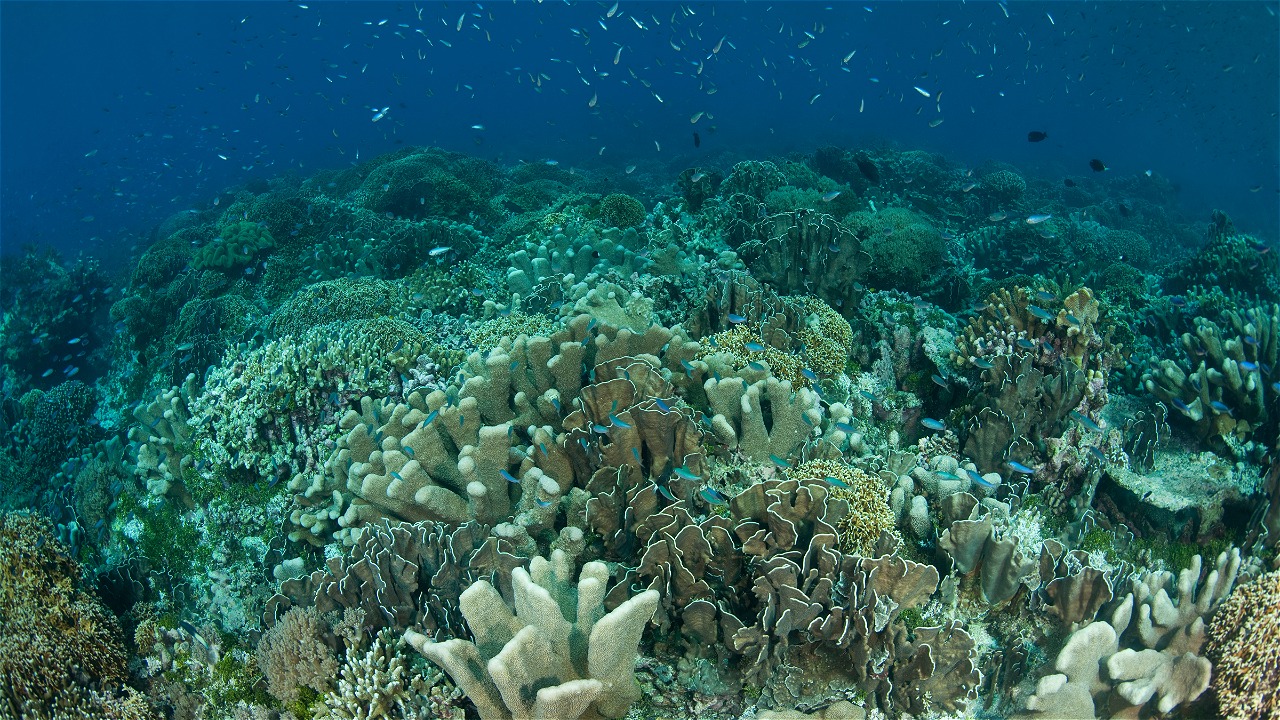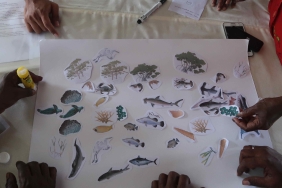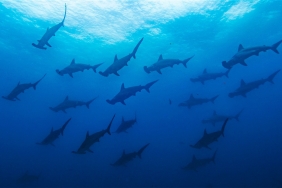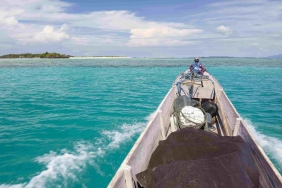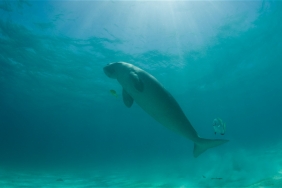BTN KOMODO'S COLLABORATIVE PATROLS AND TOURISM ACTORS PREVENT CORAL REEF DAMAGE
By: Jensi Sartin (Site Coordinator Komodo Marine Protected Area (MPA), WWF-Indonesia)
"Prevention of damage to coral reefs and the tourism potential of Komodo National Park (TN) becomes more effective with a collaboration mechanism," explained Sudiyono, Head of Komodo National Park (BTN), regarding the implementation of patrols in collaboration with tourism operators in Labuan Bajo, East Nusa Tenggara (NTT), who are members of the Dive Operator Community Komodo (DOCK) association.
This patrol cooperation began on July 21, 2017. Every day, BTN Komodo officers carry out patrols by departing with trip tour boats according to an agreed schedule to monitor tourism activities within the waters of Komodo National Park.
"With this system, every day we can monitor at least 3 marine tourism sites within the area, according to the travel route of the tour boat," said Darman, one of the BTN Komodo officers who just finished monitoring tourism activities in Siaba Besar, Manta Point, and Mawan. "Today, we gave guidance to one of the boats from Labuan Bajo that tried to use the anchor at the Manta Point dive site," he continued.
Komodo National Park itself has developed into a popular destination for diving tourism. Not only holds the title as a World Heritage Site and Man and Biosphere Reserve by The United Nations Educational, Scientific and Cultural Organization (UNESCO), Komodo National Park has also been designated as one of 10 priority tourism destinations for the 2016-2019 period through the direction of President Joko Widodo.
The trend of tourist visits in Komodo National Park does show an increase every year. As a Priority Tourism Destination, Komodo National Park is even targeted to receive a total of 500,000 foreign tourist visits, by the end of 2019.
Without effective management, the increasing number of tourists can have a negative impact on the area. "Tourism practices that are not environmentally friendly and irresponsible, such as the use of anchors, can damage coral reefs and seagrass beds, and even endanger protected animals, such as manta rays," said Indarwati Aminuddin, Responsible Marine Tourism Coordinator, WWF-Indonesia, who actively supports improving the effectiveness of management and the application of sustainable tourism in Komodo National Park.
"This includes the practice of plastic waste disposal, which is not only harmful to the ecosystem but also brings a bad image to the tourist destination itself," she added.
In addition to the potential impact of environmentally unfriendly tourism practices, Komodo National Park is also under pressure from other destructive activities. The presence of officers on board these tourist boats is expected to increase the effectiveness of monitoring other illegal activities.
"Officers on tourist boats can immediately record and report fishing activities that violate zoning, fish bombing, coral harvesting, the use of potash, the use of environmentally unfriendly fishing gear, and the capture of protected animals," said Hendrikus Rani Siga, Head of Section II of Komodo National Park. "All of these things will be reported to the nearest guard post so that immediate action can be taken," he continued.
"We hope that this collaboration with tourism actors can reduce the potential negative impact of area utilization activities, as well as learning active cooperation and sharing roles between the government and the tourism industry," explained Sudiyono,
"In the future, we will also replicate this cooperation with dive operators with recreational vessels, both liveaboard and local vessels from Labuan Bajo," he concluded optimistically on this newly initiated collaboration patrol.

